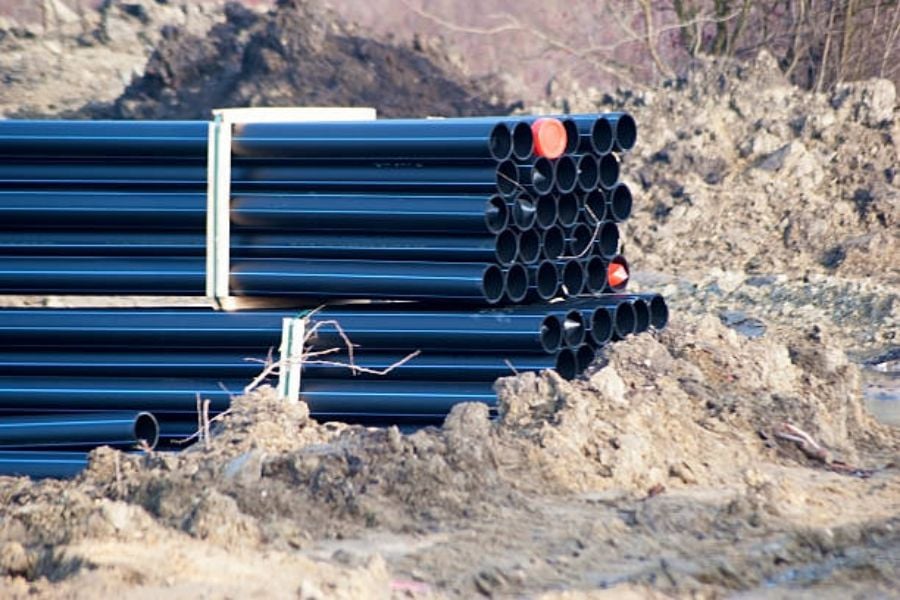Pressure poly pipes are high-density plastic pipes that come in various sizes and lengths. They are commonly used in irrigation, water supply, and gas distribution systems. The pipes are made of polyethylene, which is a flexible and durable material that can withstand high pressure and extreme temperatures. Pressure poly pipes are popular among contractors and farmers because they are lightweight, easy to install, and cost-effective.
The Advantages of Pressure Poly Pipes
Pressure poly pipes have several advantages over traditional piping materials such as concrete, steel, and PVC. Firstly, they are resistant to corrosion, which means they can last for decades without deteriorating. Secondly, they are flexible and can be easily bent and twisted without breaking. This feature is particularly useful in applications where the pipes need to be maneuvered around obstacles or in tight spaces. Lastly, pressure poly pipes have a smooth inner surface that allows for efficient water flow and reduces friction.
Applications of Pressure Poly Pipes
Pressure poly pipes are used in a wide variety of applications. They are commonly used in irrigation systems to transport water from the source to the crops. The pipes are also used in water supply systems to transport potable water to homes and businesses. Gas distribution systems also use pressure poly pipes to transport natural gas. The pipes are reliable, durable, and cost-effective, making them a popular choice in many industries.
Factors to Consider When Choosing Pressure Poly Pipes
When choosing pressure poly pipes, there are several factors to consider. Firstly, the size of the pipe should match the flow rate and pressure requirements of the system. Secondly, the type of polyethylene used in the pipe should be appropriate for the application. High-density polyethylene (HDPE) pipes are suitable for high-pressure applications, while low-density polyethylene (LDPE) pipes are suitable for low-pressure applications. Lastly, the length and thickness of the pipe should be chosen based on the distance between the source and the destination and the soil conditions.
Installation of Pressure Poly Pipes
The installation of pressure poly pipes is a straightforward process. Firstly, the trench is dug and prepared for the pipe. Secondly, the pipe is laid in the trench and connected to the fittings using a variety of techniques such as butt fusion, electrofusion, and mechanical connections. The fittings must be compatible with the type of polyethylene used in the pipe. Finally, the trench is backfilled and compacted, and the system is tested to ensure there are no leaks or other issues.
Maintenance of Pressure Poly Pipes
Pressure poly pipes require minimal maintenance, and the cost of maintenance is low compared to other piping materials. The pipes should be inspected regularly to ensure there are no signs of wear and tear, and any damage should be repaired immediately. It is essential to use the appropriate tools for repair and maintain an inventory of spare parts and fittings. Lastly, the pipes should be protected from direct sunlight and extreme temperatures to prolong their lifespan.
The Cost of Pressure Poly Pipes
Pressure poly pipes are cost-effective compared to other piping materials. The cost of the pipes depends on several factors, including the size, length, and thickness of the pipes, as well as the fittings and installation costs. However, the total cost of pressure poly pipes is much lower than the cost of traditional piping materials. Additionally, the low maintenance costs make pressure poly pipes an attractive option for contractors and farmers.
The Importance of Choosing Quality Pressure Poly Pipes
Choosing quality pressure poly pipes is essential for the longevity and efficiency of the system. Low-quality pipes can lead to leaks, breaks, and other issues that can be costly to repair. It is important to choose pipes from reputable manufacturers that have been tested and certified for use in the specific application. Quality pipes may be more expensive upfront, but they can save money in the long run by reducing maintenance and repair costs.
The Future of Pressure Poly Pipes
Pressure poly pipes are a versatile and reliable piping material that is widely used in many applications. The demand for pressure poly pipes is expected to grow in the future as the world becomes more aware of the advantages of this material. Innovations in piping technology, such as the development of new polyethylene blends and advanced installation techniques, may further increase the popularity of pressure poly pipes.
In Conclusion
Pressure poly pipes are a durable and cost-effective piping material that is suitable for a wide range of applications. Choosing quality pipes from reputable manufacturers and following proper installation and maintenance procedures can ensure the longevity and efficiency of the system.
Quote Inquiry
Contact Us

